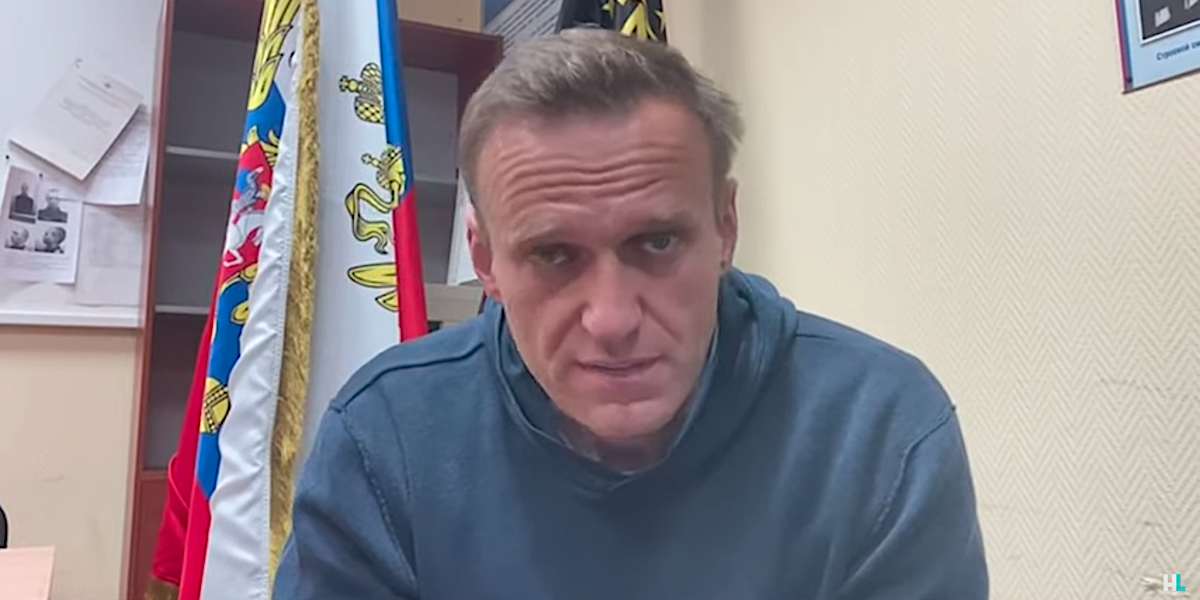
Navalny Live/YouTube
- The Biden administration called on Russia to release opposition figure Alexei Navalny.
- The new administration is applying diplomatic pressure on Russia related to Navalny’s release and the SolarWinds hack.
- The New York Times reported that upwards of 3,000 protesters were arrested by Russian authorities as protests spread across the country last week.
- Visit Business Insider’s homepage for more stories.
On Wednesday, the Biden administration strengthened its calls for Russia to release opposition figure Alexei Navalny. He also called for the release of protesters supporting Navalny, who were jailed over the weekend.
“We can both operate in the mutual self-interest of our country as a New START agreement, and make it clear to Russia that we are very concerned about their behavior, whether it’s Navalny, whether it’s the SolarWinds, or whether it’s reports about bounties on the heads of Americans in Afghanistan,” President Biden told reporters on Monday.
Biden’s comments on Russia represent a stark shift from Trump’s political courtship and repeated lack of condemnation of Putin.
At a later press conference, Press Secretary Jen Psaki reiterated the calls for Navalny’s release.
“We call on Russian authorities to release all those detained for exercising their universal rights and for the immediate and unconditional release of Alexei Navalny,” Psaki told reporters. Over the weekend, the State Department issued a statement condemning Navalny’s detention and the mass arrest of protesters.
Psaki also called for Russia to "cooperate" with the international investigation into Navalny's poisoning in August 2020, when the opposition leader was poisoned by Novichok, a nerve agent.
Navalny was poisoned in August and fell seriously ill on a flight. He was later transported to Berlin for treatment, where he entered a medically-induced coma and doctors confirmed he was poisoned by a nerve agent.
Outlets like CNN and Bellingcat reported that the Kremlin was behind the attack on Navalny. At the time, Trump said, "It's tragic. It's terrible, it shouldn't happen. We haven't had any proof yet, but I will take a look."
After Navalny returned to Russia last week, he posted a video of his arrest at the airport.
Last week, Russian celebrities posted their support for Navalny, and large-scale protests were held calling for Navalny's release.
The New York Times reported that upwards of 3,000 protesters were arrested by Russian authorities, and in a call with students today, Putin called the protests "illegal."
National security experts told Insider that Navalny's arrest has left Putin in a Catch-22 situation where Navalny has outmaneuvered him, and his release or death could further mobilize people against the government.
Putin spokesman Dmitry Peskov called out the US support for the protests and Navalny's release, saying that the statements, "indirectly constitute absolute interference in our internal affairs." Peskov said the protests across the country were, "unauthorized actions."
